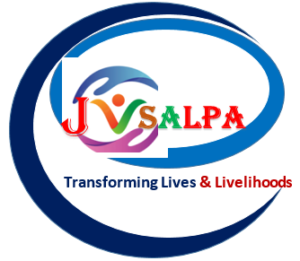Juba and Shebelle Agriculture and Livestock Professional Association (JUSALPA)
Ensuring Access to Clean Water
JUSALPA works to ensure that communities have reliable access to clean and safe drinking water. We rehabilitate existing water sources, such as wells and boreholes, and construct new ones in areas where water scarcity is a significant challenge. Additionally, we install water storage and distribution systems to ensure that even the most remote and vulnerable populations have access to safe water.
Improving Sanitation Facilities
Proper sanitation is crucial for preventing the spread of waterborne diseases. JUSALPA’s programs focus on the construction and rehabilitation of sanitation facilities, including latrines, drainage systems, and waste management structures. These facilities are designed to be safe, accessible, and culturally appropriate, with particular attention to the needs of women, children, and people with disabilities.
Hygiene Promotion and Education
Education is a key component of our WASH initiatives. JUSALPA conducts hygiene promotion campaigns that educate communities about the importance of handwashing, safe water storage, and proper waste disposal. We work with schools, health centers, and community groups to spread these vital messages, helping to reduce the incidence of preventable diseases and improve overall health.
WASH in Schools
JUSALPA prioritizes WASH in schools to ensure that children have access to clean water and safe sanitation facilities, which are critical for their health and educational success. Our programs include the installation of handwashing stations, the provision of hygiene kits, and the integration of hygiene education into the school curriculum. By focusing on WASH in schools, we help create a healthy learning environment for students.
Emergency WASH Response
In times of crisis, such as during natural disasters or disease outbreaks, JUSALPA provides rapid WASH support to affected communities. We deploy emergency water supplies, set up temporary sanitation facilities, and distribute hygiene kits to prevent the spread of disease. Our emergency WASH interventions are designed to meet immediate needs while also laying the foundation for longer-term recovery.
Community-Led Total Sanitation (CLTS)
JUSALPA implements the Community-Led Total Sanitation (CLTS) approach to encourage communities to take responsibility for their sanitation needs. Through participatory methods, we mobilize communities to stop open defecation and build their own latrines. This approach fosters a sense of ownership and responsibility, leading to sustainable improvements in sanitation practices.
Water Resource Management
Sustainable water resource management is essential for ensuring long-term access to clean water. JUSALPA works with communities to develop and implement water management plans that balance the needs of people, agriculture, and the environment. We also provide training on water conservation techniques to ensure that water resources are used efficiently and sustainably.
Monitoring and Evaluation of WASH Programs
To ensure the effectiveness and sustainability of our WASH programs, JUSALPA conducts regular monitoring and evaluation. We assess the impact of our interventions, track progress, and make data-driven adjustments to improve outcomes. This continuous learning process helps us to refine our approach and maximize the benefits of our WASH initiatives for the communities we serve.
